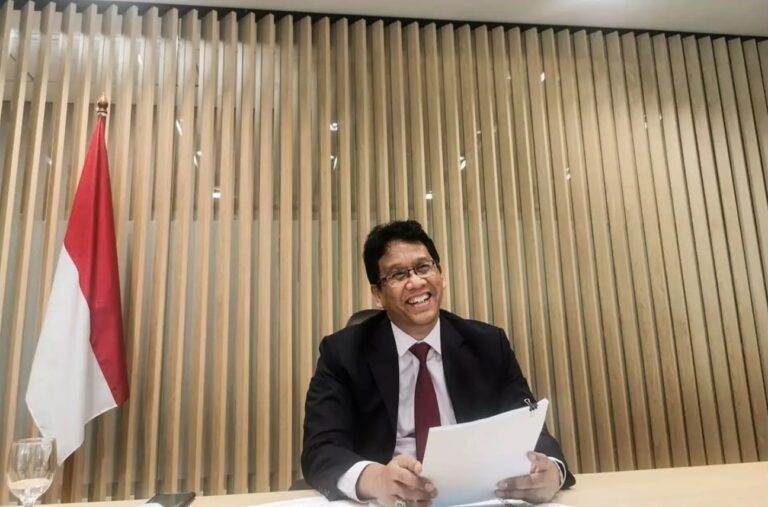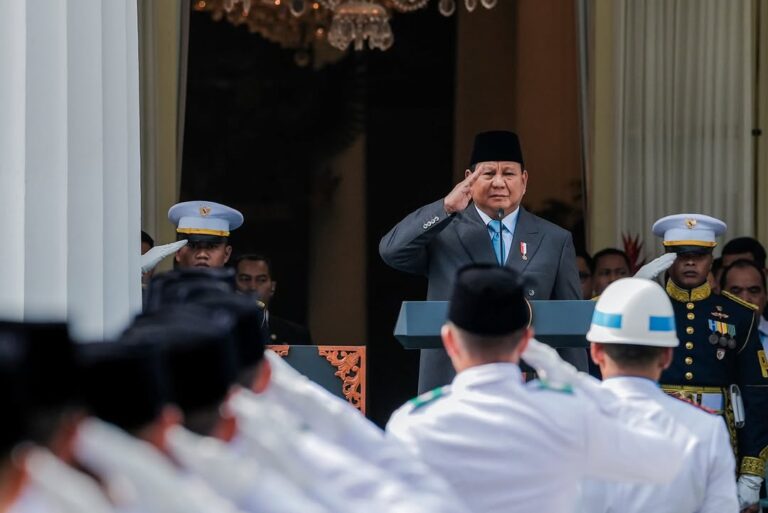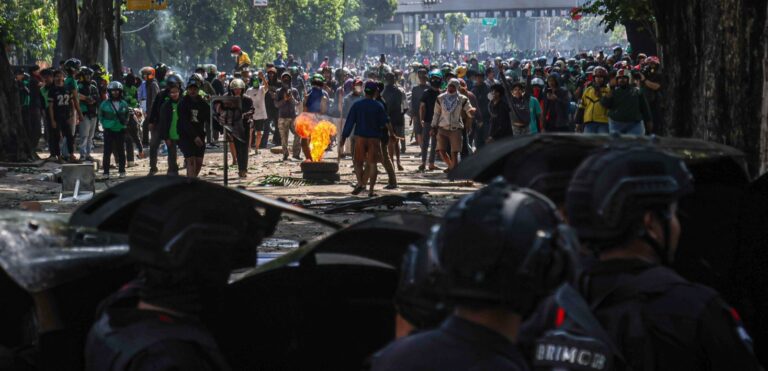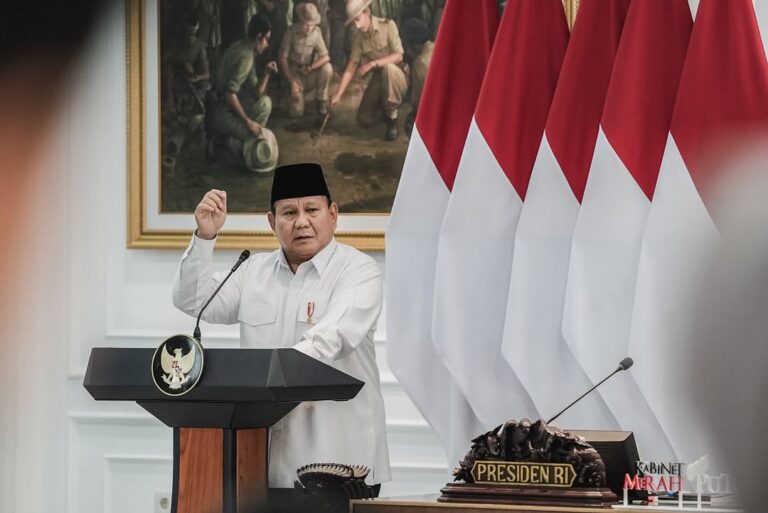Issue #1 — Week of August 23–29, 2025
Opening Note
Indonesia is at a crossroads. For decades, the mantra of reformasi emphasized decentralization, autonomy, and local control. But today—amid rising inequality, regional inefficiencies, and economic stress—our path demands greater cohesion.
President Prabowo’s central government initiatives—from budget consolidation to large-scale social programs—are not about reversing reformasi, but adapting governance for the 21st century.
This newsletter aims to explain Indonesia’s choices from an Indonesian perspective, moving beyond western clichés of reformasi and the dominant western narrative of democratic fragility.
Law & Governance
Budget Consolidation as National Strategy
Presidential Instruction No. 1/2025 mandates Rp 306 trillion in cuts across local and national budgets—redirecting funds toward free meals, defense upgrades, and national infrastructure, rather than local administration. Critics tag this as austerity, but the strategy is consolidation for efficiency.
Anti-Corruption Drive: Restoring Trust in the State
Following his State of the Nation message, President Prabowo launched an ambitious anti-corruption campaign aimed at reclaiming $18.5 billion tied to collusion, illegal mining, and profiteering cartels. Reasserting central power to dismantle entrenched corruption is, in itself, a democratic act.
Public Unrest & Demonstrations
Rise of Mass Protests, Public Frustration Erupts
Last week, nationwide protests erupted—sparked by revelations of lavish official allowances and heightened by the tragic death of a delivery driver, Affan Kurniawan, struck by a police armored vehicle. The incident catalyzed outrage, triggering mass demonstrations in Jakarta, Surabaya, Bandung, and beyond. Students and workers demanded police reform, wage increases, and government accountability.
● Protesters clashed with police using tear gas and water cannons over MPs’ 50 million rupiah/month housing allowances—nearly ten times Jakarta’s minimum wage.
● Outrage intensified after Kurniawan’s death, spurring violent clashes, government remorse, and his family receiving a house and support.
● Financial repercussions followed: markets fell, the rupiah weakened, prompting Bank Indonesia to intervene.
Some protests have roots in anti-corruption and anti-Prabowo sentiment—a narrative potentially amplified by foreign-influenced forces or domestic movements aligned with past “Indonesia Gelap” campaigns.
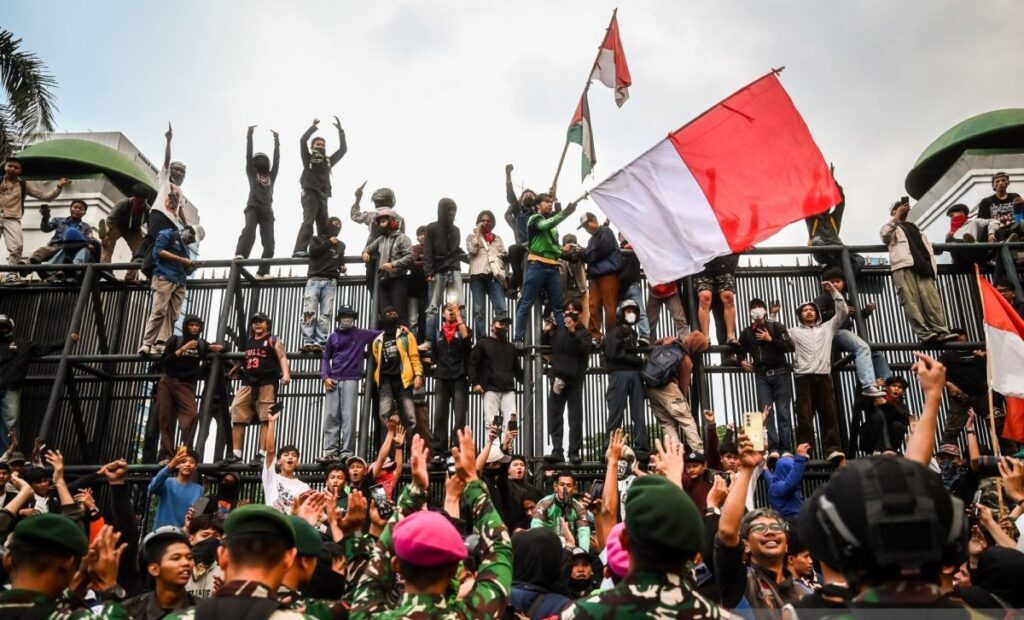
Finance & Economy
Free Meals, National Investment, and Fiscal Discipline
The proposed 2026 budget—Rp 3,728 trillion (~$234 billion)—aims to stabilize the deficit at 2.5% of GDP by 2028, offering both fiscal restraint and social investment. The free meals initiative targets 83 million children and pregnant women, delivering equality through central channels rather than fragmented local systems.
Sovereign AI Fund: Centralizing the Future
Danantara is spearheading a proposed sovereign AI fund designed to transform Indonesia into a regional tech leader by 2027–2029. The fund will combine public and private capital, delivering incentives and scaling digital infrastructure and skills—another example of central leadership enabling leapfrogging development.
Business & Strategic Deals
● Energy Independence: Danantara and KBR have agreed to a $8 billion investment in modular refineries across strategic sites (Natuna, Surabaya, North Halmahera, Fakfak) to reduce import reliance.
● China’s Industrial Relocation: Rising U.S. tariffs are steering Chinese firms to Indonesia, pushing up industrial property values by 15–25% around West Java and port zones.
● Free Trade Agreement with Peru: Indonesia has signed a broad partnership expanding trade in food, fisheries, mining, energy transition, and defense, signaling diversification in diplomatic-economic ties.
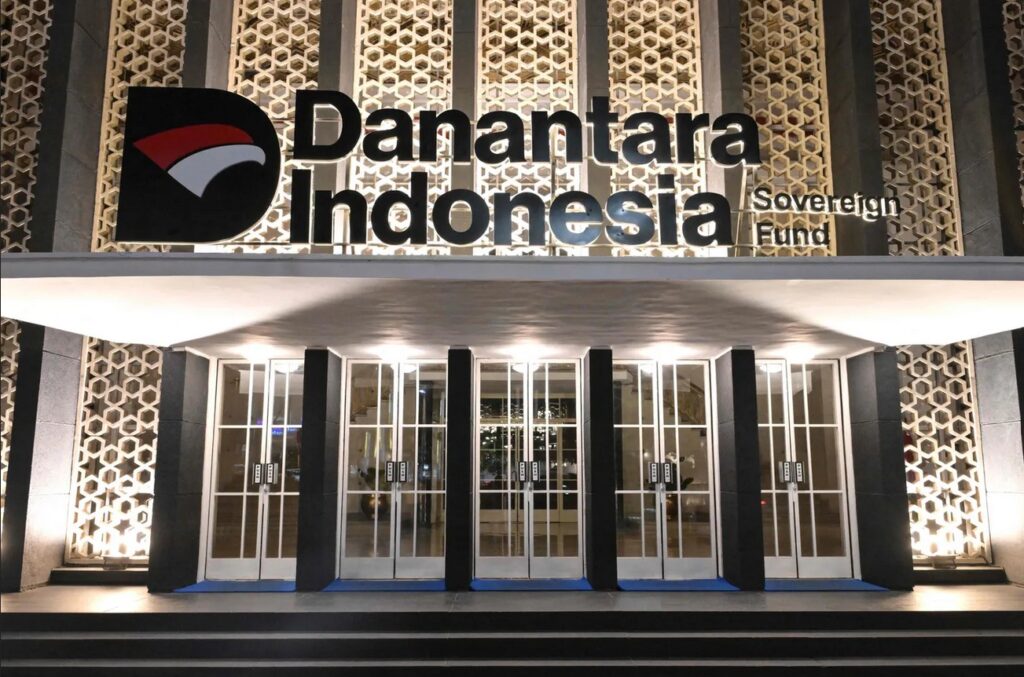
Politics & Power
Unity Over Fragmentation
The recent protests—which surged from public grievances over allowances and police brutality—underscore the limits of decentralized authority. Local autonomy becomes problematic when it exacerbates inequality or fails to deliver.
Central consolidation is necessary to uphold equitable governance and restore trust. In the end, symbolic flags and protest flashpoints cannot substitute for policy integrity and institutional strength.
Counter-Narrative Corner
Western observers may view rising central power as democratic backsliding. But in Indonesia’s context, ceding local authority is not undemocratic—it’s a response to systemic failure.
Centralization here equates to visible, accountable stateaction, focused on restoring competence and safeguarding livelihoods—especially in times of economic strain and social volatility.
Closing Reflection
Indonesia stands at a historical inflection. Sukarno’s vision of Persatuan Indonesia—unity in diversity—is still our compass. Centralization, rightly steered, does not betray reformasi—it fulfills it on a grander scale. It’s not about control; it’s about responsibility, cohesion, and shared outcomes in a changing world.
Sources:
1. Wikipedia – August 2025 Indonesian protests
2. Al Jazeera – Why are antigovernment protests taking place in Indonesia?
3. A.P News – Tensions soar in Indonesia as protests over police brutality and lawmakers’ allowances continue
4. The Guardian – Protests erupt in Indonesia over privileges for parliament members and ‘corrupt elites’
5. Financial Times – Indonesia’s president calls for calm as protests mount
6. Indonesia at Melbourne – Out of touch: Why an increase in politicians’ allowances triggered mass protests
7. MYC – Indonesian Protests Escalate Over Lawmakers’ Lavish Allowances
8. AntaraNews – Jakarta Protests: Indonesian Army steps in to maintain peace


